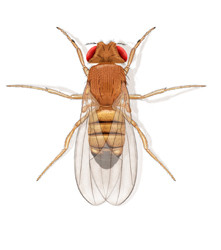Sex-specific ageing patterns
Though sexual conflict is a key evolutionary process, the effect of sexual conflict on sex-specific ageing has not been explored in depth. To address these gaps in knowledge, scientists initiated the AGEINGSEXUALCONFLICT (Senescence and sexual conflict in a model insect species (Tribolium castaneum): a test of evolutionary ideas) project. Researchers investigated the effect of kin selection on sexual conflict and sex-specific patterns of ageing using insect models with intense sexual conflict and sex-specific ageing rates. The Drosophila melanogaster model was selected to study the effect of kin selection on sexual conflict intensity and reproductive ageing. Females exposed to male groups of brothers competing for reproduction had higher lifetime reproductive success and slower reproductive ageing than their counterparts. These findings were published in the Nature journal. Project scientists also explored the transgenerational effects of kin-selected modulation of sexual conflict. They compared the lifespan of offspring of females exposed to related and unrelated male groups. Preliminary results indicate that male relatedness not only decreases female reproductive senescence but also enhances the lifespan of their offspring. Research outcomes have significant implications in the field of evolutionary biology. These findings have opened up novel avenues of research on sexual selection with social evolution.







